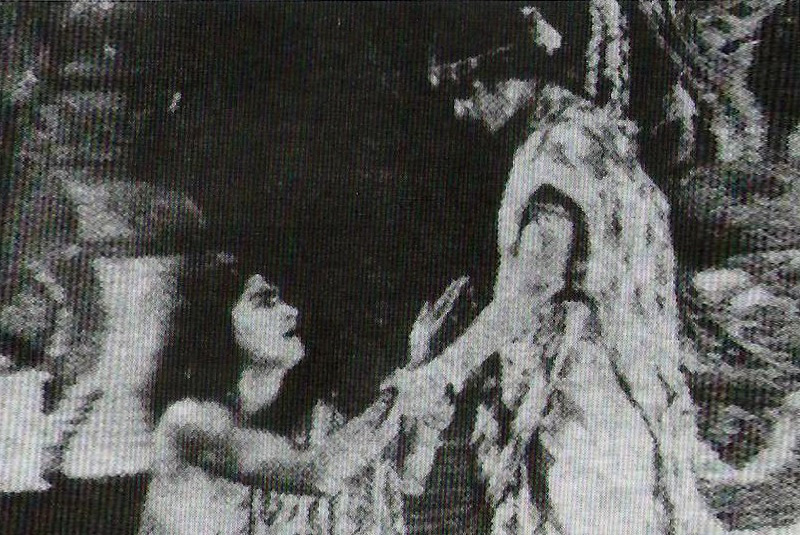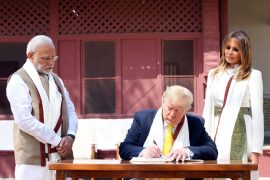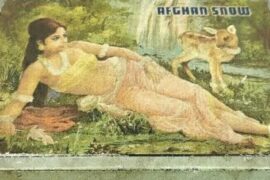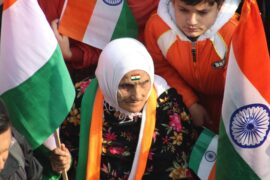The year was 1931. Gandhi attended the Round Table Conference in London. But the people of Madras were preoccupied with something else: the reels of Kalidas arrived by train on the day of Diwali. Curious to see the film, thousands of people followed the reels from the Madras Central Station to Kinema Central. They burned incense, showered flowers, and cracked open coconuts. The first Tamil-Telugu Talkie was to be screened in the ‘House of Perfect Sound’.
A Multilingual Musical Spectacle
‘Come and Hear, First Indian Tamil and Telugu talkie,’ read the advertisement in The Hindu, dated October 31, 1931. Shot in Bombay, produced by Ardeshir Irani and directed by H.M. Reddy, the movie, predominantly in Tamil, also featured dialogues in Hindi and Telugu. Simply put, it catered to the diverse audience of the Madras Presidency.
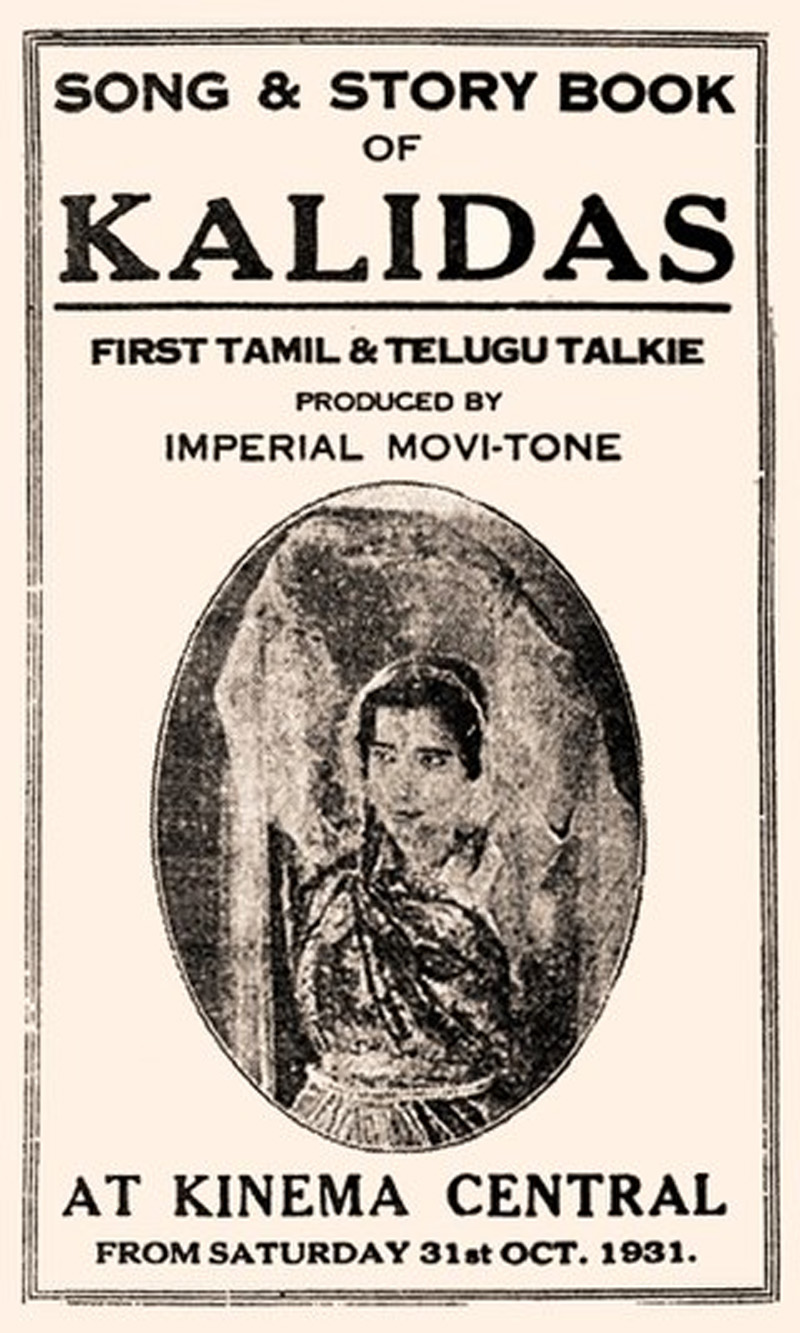
A day before its release, The Hindu claimed that the movie was the first talkie to be screened in the city with songs in two languages: Tamil and Telugu. The film was based on the life and legacy of the legendary poet Kalidas; it starred P.G. Venkatesan, T.P. Rajlakshmi and L.V. Prasad in lead roles.
The plot revolves around Princess Vidhyadhari (played by T.P. Rajlakshmi), the daughter of the king of Thejavathi, Vijayavarman. As the story goes, the princess refuses to marry a minister’s son. Thus, sorely hurt, the minister who plans on humiliating her sets forth to find a groom for her.
After an exhaustive search, the minister comes across a cowherd (played by P. G. Venkatesan) who attempts to chop off the branch on which he was perched. The wily minister, who thinks he has found a mentally inferior person, comes up with an elaborate plan to get him married to her. Through guile and treachery, the minister persuades the cowherd to marry Princess Vidhyadhari.
After the marriage, the princess realises that she has been tricked. Having no recourse, she begs the goddess Kali to come to her aid. The goddess agrees to help her, names the cowherd Kalidas and imbibes him with phenomenal literary skills.
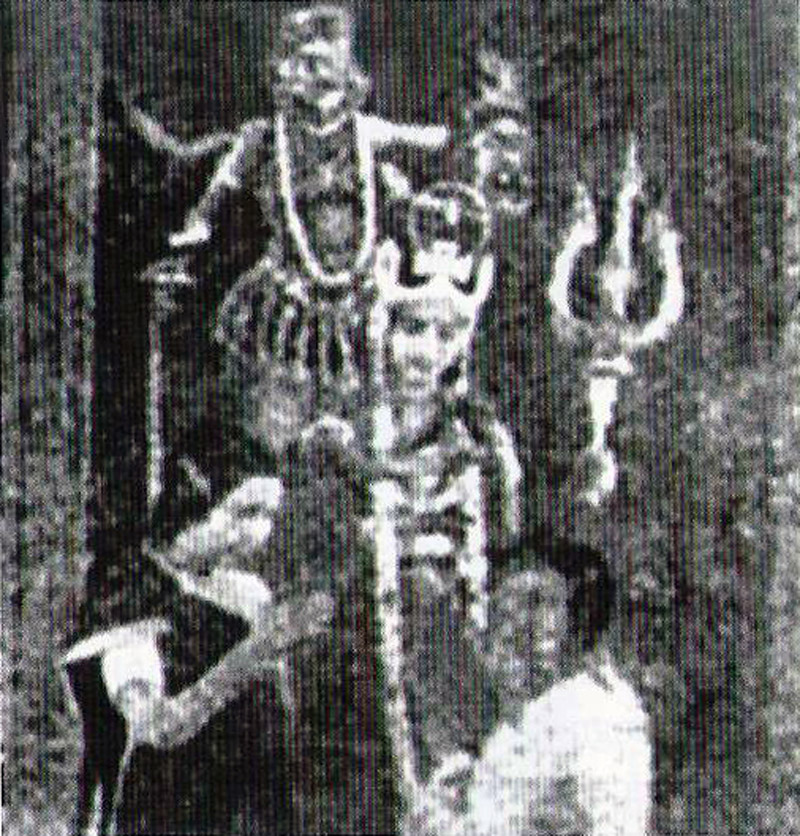
The eight-day process
Completed within eight days with a steep budget of eight thousand rupees, Kalidas was the first Indian multilingual movie. It was directed by H.M. Reddy, who was credited to have been at the helm of the first Telugu talkie, Bhakta Prahaladha, in 1931.
The advertisement announcing the film’s release was also published in the Tamil magazine Swadesmitran with the title, ‘First Tamil-Telugu Talking Picture.’ A review published a day earlier praised the film and termed it a must-watch. Unfortunately, the film was lost to time. No part of it survived—not even the songbooks or the gramophone records.
Political context
The movie was replete with songs set to classical Carnatic ragas. The heroine, T.P. Rajlakshmi, however, sang two melodies unrelated to the plot, praising the Chakra, the symbol of Indian unity. These songs, written by nationalist poet Bhaskar Das, were immensely significant given the context of the film.
Released in 1931, the film was set during the pivotal Round Table Conference, which followed the Civil Disobedience movement and the Gandhi-Irwin Pact.
The Salt Satyagraha finally ended on 4 March 1931 with the signing of the Gandhi-Irwin pact. The possibility of a free India was in the talks. Gandhi left for London in September, and the film was released a month later.
The significance of this time was massive to every Indian. Freedom seemed to be within arm’s reach. Gandhi’s Civil Disobedience had reached its desired fulfilment. Its significance and symbolism knew no bounds. It had successfully mobilised the masses and induced widespread resistance. The profound cultural significance of Indianness was at an all-time high.
The production was critically acclaimed. Moreover, the film was a commercial success, making Kalidas a trendsetter and paving the way for sound films in Tamil cinema.
-30-
Copyright©Madras Courier, All Rights Reserved. You may share using our article tools. Please don't cut articles from madrascourier.com and redistribute by email, post to the web, mobile phone or social media.Please send in your feed back and comments to [email protected]

